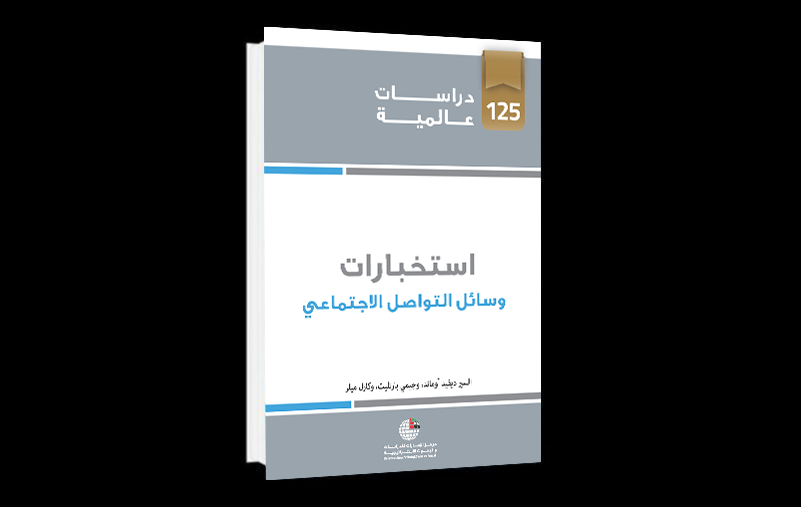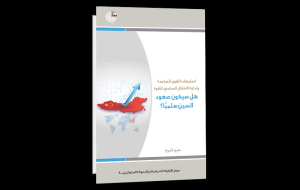In an era where social media has become ubiquitous, the security community has a responsibility to adopt social media intelligence work as part of the overall national intelligence framework. However, two preconditions must be met prior to this integration. First, this branch of intelligence must be built on solid foundations for information gathering, identification, verification, understanding and application. Second, ethical concerns related to social media intelligence must be properly addressed. This study aims to provide a framework for tackling these issues.
The Internet has rapidly transformed our lives, as interactions, discussions and even our opinions have moved to an arena where the distinction between public and private is blurred. This transformation has taken place on an unprecedented scale; for instance, 250 million images are posted on Facebook daily, 200 million tweets are posted on Twitter and 4 billion videos are viewed on YouTube. The effective use of online intelligence, including social media datasets, depends on getting it to the right people, quickly and securely, in a form that emphasizes its strategic and operational importance for decision-makers.
The revolution in the use of social media, on such a large scale, presents significant opportunities. For this reason, social media intelligence should be fully integrated within the intelligence community and law enforcement agencies. At the heart of this integration are two interconnected elements; necessity and legality.
We must work to realize the potential for social media intelligence to be used as a tool for law enforcement, and as an open source of information. Methods to protect society must be based on popular acceptance and engagement. The UK’s National Security Strategy recognizes this, which leads to active collaboration between individuals and society. When the public doesn’t trust government efforts, or rejects them, state security is seriously weakened.
Public acceptance can be achieved and maintained in two key ways. Firstly, by developing the ability to gather intelligence that successfully contributes to safety and security. Secondly, by ensuring these efforts are balanced with the public interest, for example, on issues of privacy. Intelligence activity should therefore contribute to supporting the public interest, rather than detracting from it, or jeopardizing any other interests.
To meet these requirements, there is a need to develop a new applied academic discipline; the science of social media. This, requires cultivating new relationships between industry and academia, in conjunction with long-term investment to build capacity at both the technological and methodological levels. Academic disciplines best able to understand and interpret human behavior (the social and behavioral sciences, such as politics, election studies, anthropology, and social psychology) should be integrated within big data research, which is vital for analyzing social media. The only way to humanize data-driven interpretations of behavior is by merging these types of disciplines.
In order to satisfy legal requirements, the public must understand and broadly accept the reasoning behind social media intelligence operations, as well as their timing and limitations. Any government seeking to carry out these operations should follow a clear and transparent approach, based on respect for human rights and associated principles, such as accountability, proportionality and necessity.
Going forward, there are a number of challenges to be addressed. First, the dissemination of social media intelligence should take into account the difficulties in using this form of intelligence, such as data complexity, data volume and the dynamism of data (constantly being updated). Any presentation of this type of intelligence should incorporate procedures and caveats that reflect these issues. Second, the dissemination of social media intelligence should be integrated within existing intelligence channels, such as the police, emergency response services, intelligence agencies and terrorism analysis centers. Third, the dissemination and retention of social media intelligence must comply with the highest standards of information security and protection. Existing controls should be reinforced to prevent any unauthorized access to social media intelligence, while regulating its dissemination at home and abroad. Any unauthorized data release would undermine public confidence in this form of intelligence work. Fourth, data visualization techniques should be used to clarify complex intelligence, while maintaining the intricate nature of the information. Law enforcement agencies, in particular, must deepen their experience in social media data analysis, in order to develop robust regulations that aim to safely manage this emerging form of intelligence work.
About the Authors:
By Sir David Omand, Jamie Bartlett and Carl Miller
Sir David Omand, a visiting professor in the Department of War Studies, King’s College London, was appointed Security and Intelligence Coordinator, UK Cabinet Office, in 2002. Reporting to the Prime Minister on the status of the intelligence community, the national strategy for counter-terrorism and internal security, Omand was also a member of the UK Joint Intelligence Committee for seven years. From 1997 to 2000, he was Home Office Permanent Secretary, and also served as Director of the Government Communications Headquarters (GCHQ). Sir David served for three years as an advisor to the British Ministry of Defence at the NATO headquarters in Brussels. He was educated at The Glasgow Academy, Scotland, and Corpus Christi College at the University of Cambridge. His published works include Securing the State (2010).
Jamie Bartlett is Head of the Violence and Extremism Program and Director of the Center for the Analysis of Social Media at Demos.
Carl Miller is Research Director at the Centre for the Analysis of Social Media at Demos, and researcher at the International Centre for Security Analysis at King’s College London.
Published by: The Emirates Center for Strategic Studies and Research
Publication Year: 2014 [In Arabic]













